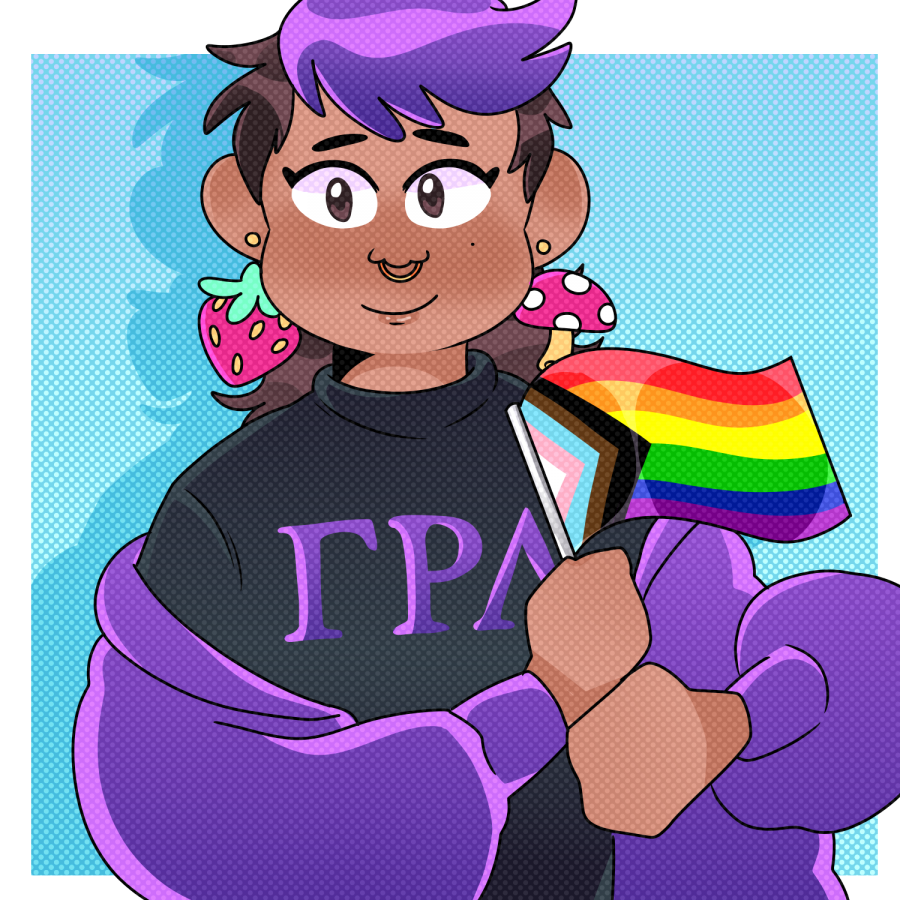UT students discuss LGBTQIA+ inclusivity in Greek life
December 2, 2021
This summer, Zach Siegel traveled to Mexico City with fellow fraternity brothers he’d only known for a few months. Their visit took place during pride month, and Siegel’s fraternity brothers surprised him by taking him to the parade as a group.
“I felt accepted and like they heard me,” Siegel said. “It was cool to see (my) good friends as excited about a topic like this as I am.”
Greek life presents a heteronormative front. While some LGBTQIA+ members feel accepted within their individual chapters, they still experience a sense of otherness due to the lack of LGBTQIA+ representation within their organization.
As the only openly gay member out of a chapter of 60, Siegel said he feels passionate about making a change by educating others within Greek life about LGBTQIA+ issues.
“I’m coming into an environment where I’m not the norm, but that’s how inclusion starts,” Siegel said. “Advocacy’s putting yourself out there and being OK with being uncomfortable for a little bit, knowing in the future people will see past that (once) they get to know you.”
Through educating those within his own chapter, Siegel said it will only result in a chain reaction for other fraternities on campus. He hopes by informing members about his personal experience, they will advocate for more inclusion within the Interfraternity Council as well.
Going into Panhellenic recruitment, urban studies senior Bradi Ledbetter said she didn’t initially worry about whether she’d be excluded due to her identity. However, after joining her sorority, she said she felt less comfortable making that part of herself visible.
“When it came to my sexuality, it was one of those ‘no-no’ topics,” Ledbetter said. “I had that internalization of feeling different from everyone else.”
Feeling isolated within their experience in Greek life, Ledbetter and other LGBTQIA+ Panhellenic sorority members formed an affinity group to share their experiences. Ledbetter said knowing others related to her own experiences comforted her.
“I can talk to people about a girl that I thought was pretty or that I want to take to a date event,” Ledbetter said.
History junior Sophie Harkins felt inclined to join a sorority to continue her family tradition as a double legacy — meaning her mother and sister were both members of her chapter. After joining the second semester of freshman year, Harkins said she didn’t feel the sense of belonging she’d expected.
“I was proud of who I am, but I would walk into that sorority house and feel so much shame,” Harkins said. “That was a catalyst for me; to be like, ‘I don’t belong here.’”
Realizing how miserable she felt, Harkins made the decision to drop her chapter. Feeling robbed of the opportunity of sisterhood because of her identity, Harkins was devastated.
Stumbling upon Gamma Rho Lambda, an LGBTQIA+ fraternity, Harkins felt an immediate opportunity to experience the sense of community she was seeking. Joining the spring semester of sophomore year, Harkins said she has felt nothing short of love and acceptance.
“(Coming) into Gamma Rho Lambda and finding that safe space really changed my life,” Harkins said. “It feels like these are a group of my chosen family.”
Harkins said while she’s seen big strides made in terms of inclusivity within Greek life, she feels it still has a long way to go.
“They’re doing the best they can, the wheels of change just move very slowly,” Harkins said. “I hope that people recognize that if they don’t feel like they fit in with Greek life, for whatever reason, there’s always alternatives.”












